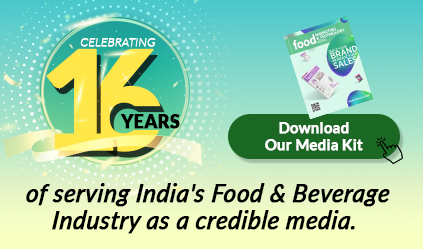Authored by Ms. Salloni Ghodawat, Director of Ghodawat Consumer Limited
In a world where choices are brimming, the battle for hearts, minds, and, ultimately, shopping carts has become fiercer than ever. In the Indian food industry, where taste reigns supreme, standing out from the crowd requires more than just delicious products. Today’s consumers crave not just a satisfying bite but a story – a narrative that resonates with their values and inspires them to become part of something bigger. This is where the power of storytelling in food brand marketing comes into play.
Storytelling allows brands to showcase the quality and benefits of their products while weaving narratives about sustainability, ethics and social impact into deeper narratives about them. This approach can be particularly powerful in food industries such as sourcing through production to packaging. These stories will resonate with eco-minded audiences while building loyalty and trust between customer segments.
Understanding Eco-Conscious Consumers
Eco-conscious consumers can be discriminating, seeking brands that reflect their values while remaining suspicious of traditional marketing techniques. Research indicates that 92% of consumers value authenticity when selecting brands to support, with 55% preferring compelling narratives over lists of facts. Furthermore, this demographic desires transparency regarding sourcing practices, ethical labour conditions and sustainable production techniques; food companies who communicate their commitment through storytelling have an edge.
Crafting an Authentic Narrative
Eco-conscious consumers demand authenticity from brands they support, so storytelling must reflect both genuine values and operations of a business. A compelling narrative should detail not only a product’s environmental benefits but also reveal information about its overall sustainability mission. For instance, a food brand could highlight its dedication to regenerative agriculture, which enhances soil health while increasing biodiversity and reducing farming’s ecological footprint.

Furthermore, your brand story should focus on the people behind your product or service. Showcasing farmers, artisans, or employees involved with its production humanises the brand while building emotional connections between consumers and the farmers or artisans involved with creating it. Stories with such emotional appeal have been shown to be 20 times more likely to be remembered than simple facts alone, making this an extremely effective method for brand recall, as per Harvard Business Publishing.
Integrating Data Into Storytelling
Integrating data into brand storytelling can dramatically boost credibility. This strategy is particularly effective in communicating complex sustainability efforts such as carbon reduction initiatives or water-saving measures; for example, mentioning that your product packaging contains 100% recycled materials or that switching production to solar-powered technology reduced their carbon footprint by an agreed-upon percentage can amplify your story’s effect.
However, brands must strike a balance between facts and emotion in their storytelling. Stories should evoke feelings of hope, responsibility, and positive change for audiences to become emotionally invested in your brand; audiences who experience that engagement are more likely to remember it while also acting upon it through purchasing or advocating on social media for it.
Leveraging Social Media and Influencers
Social media platforms have become essential tools in food industry storytelling, particularly among eco-conscious consumers who use them to discover new brands and evaluate their sustainability claims. Videos, in particular, have proven especially helpful as engaging formats for visually communicating brand stories to audiences in an accessible format.
Influencer marketing plays an integral part in amplifying brand stories. Micro-influencers who prioritise authenticity are trusted voices within their communities and can achieve four times higher click-through rates than traditional ads. By working together with influencers who share similar values, food brands can expand their reach and establish credibility among eco-conscious communities – an approach especially successful when influencers share personal accounts about incorporating sustainable products into daily life.

Sustainability isn’t just a trend – it’s an ongoing shift in consumer behaviour. Brands that invest in creating an eco-conscious narrative are more likely to build long-term customer loyalty. Statistics showed that an engaging brand story could even result in up to 20% greater customer retention as consumers feel more aligned with brands that share their values.
Sustainability stories don’t need to be grandiose, either. Small efforts such as reducing packaging waste, supporting fair trade practices, or investing in local communities can have an immense impact on how a brand is seen by its audience. What matters is communicating these efforts in an authentic and actionable way that resonates with your target consumers—failing to meet this expectation may alienate their audiences entirely.
In conclusion, a well-told tale not only captures attention but can also build trust, deepen emotional connections, and drive action! By weaving narratives that emphasise sustainability, transparency, and social responsibility into their stories, food brands can establish themselves as leaders within this sector—not only drawing new customers in but also retaining those who already share similar beliefs.



